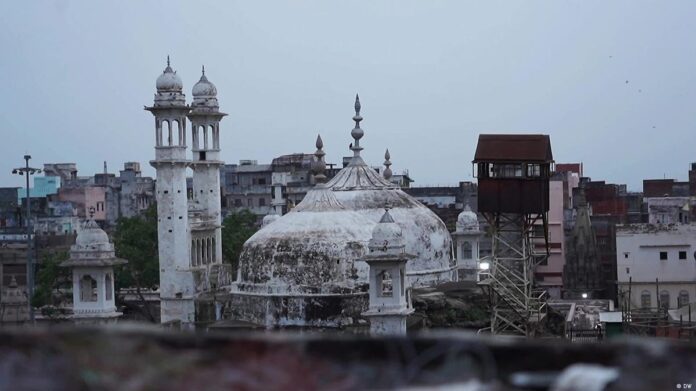In a recent development, the Gyanvapi Masjid committee has taken its case to the Allahabad High Court, challenging the Varanasi district court’s decision to permit Hindus to conduct puja in the ‘Vyas Tehkana,’ the southern cellar of the Gyanvapi structure. This move comes after prayers were performed for the first time in 31 years in the southern cellar of the masjid, following the district court’s order.
The Gyanvapi Masjid, located in Varanasi, Uttar Pradesh, has been a site of historical and religious significance, embodying a complex interplay of Hindu and Muslim heritage. The recent court decision has reignited a long-standing dispute, raising questions about the delicate balance between religious rights and historical preservation.
The Varanasi district court’s order, allowing Hindus to perform puja in the southern cellar, has sparked both celebration and controversy. Advocates for Hindu rights argue that it is a step towards restoring their religious practices, while critics fear that such actions could lead to further tensions and challenges to the historical fabric of the masjid.
The Gyanvapi Masjid has witnessed a tumultuous history, with claims and counterclaims over its origins and ownership. The legal battle has added another layer to the complexities surrounding this religious site. The Allahabad High Court now faces the task of carefully evaluating the arguments presented by the Gyanvapi Masjid committee and the implications of the district court’s decision.
The resumption of prayers in the southern cellar after three decades marks a significant moment for Hindus, who view it as a reclaiming of their religious space. However, it also deepens the existing fault lines and raises concerns about the potential impact on the cultural and historical integrity of the Gyanvapi Masjid.
As the legal proceedings unfold, the nation watches closely, aware of the broader implications for religious harmony and the delicate balance required to address the multifaceted dimensions of the Gyanvapi Masjid dispute. The outcome of the Allahabad High Court’s deliberations will undoubtedly shape the future narrative of this historical and religious landmark.


